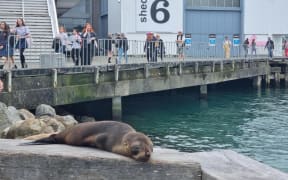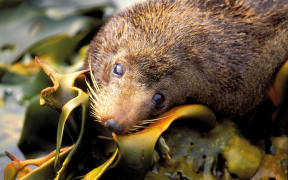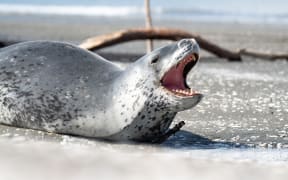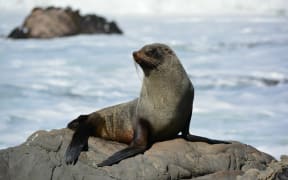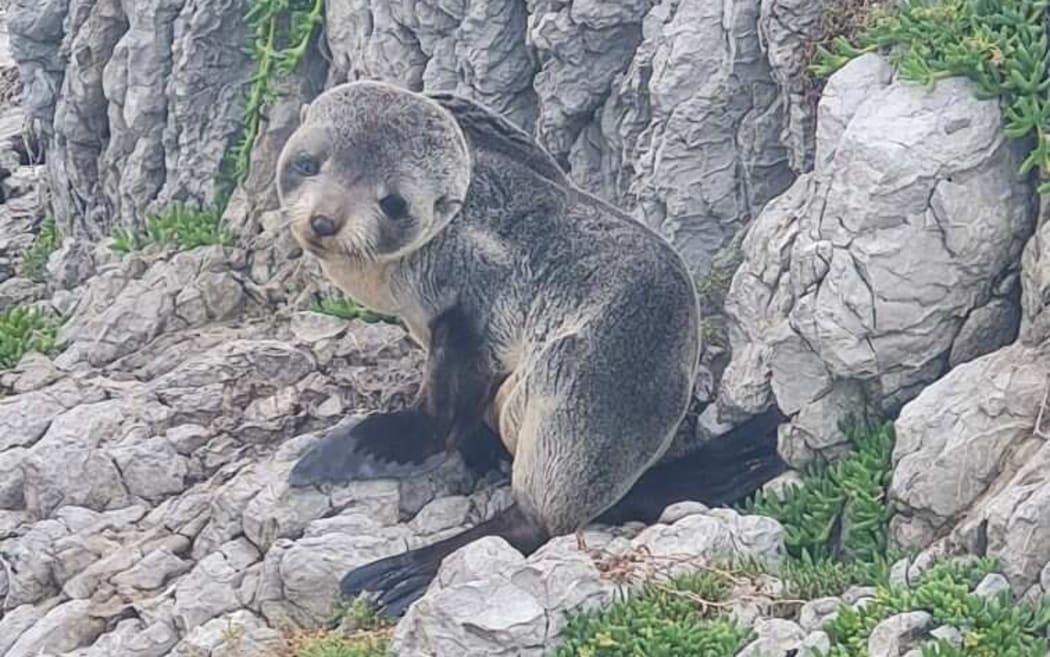
An emaciated seal pup that was found dead days later. Photo: Supplied / Department of Conservation / Dr Jody Weir
Nearly 1000 fur seals have died along the Kaikōura coastline in the past five months, and scientists say it is a result of warmer sea temperatures and depleted fish stocks.
Post-mortem tests showed many were baby seals that had starved to death, and further research was being done to work out what exactly was going on.
Department of Conservation marine science adviser Dr Jody Weir said an increase in fur seal deaths at the end of winter was not uncommon, but this was an unusual mortality event at the Ōhau Point seal colony, north of Kaikōura.
"It began in the dozens, then the hundreds and we are seeing lots of pups less than one year old and many foetuses and pups born too early that haven't survived.
"That is an indication that there is probably nutritional stress happening with the adult females, they need to get enough food and energy to not only feed themselves but supply milk to a growing pup and they are generally pregnant at the same time, so they need energy for that too."
She said seals were not fussy eaters but when the mothers had an energy deficit, their pups would begin to die.
"A recent report showed that New Zealand fur seals eat 46 species of fish, 18 cephalopod species and so the fact they are still starving, that they couldn't find enough food with that very diverse diet, is very troublesome."
Another report that analysed fur seal faeces showed around 10 percent of their diet were species of significant commercial value, like hoki, which had been shown to shift significantly in response to marine heatwaves.
"It's certainly an indicator there are changes taking place in our oceans."
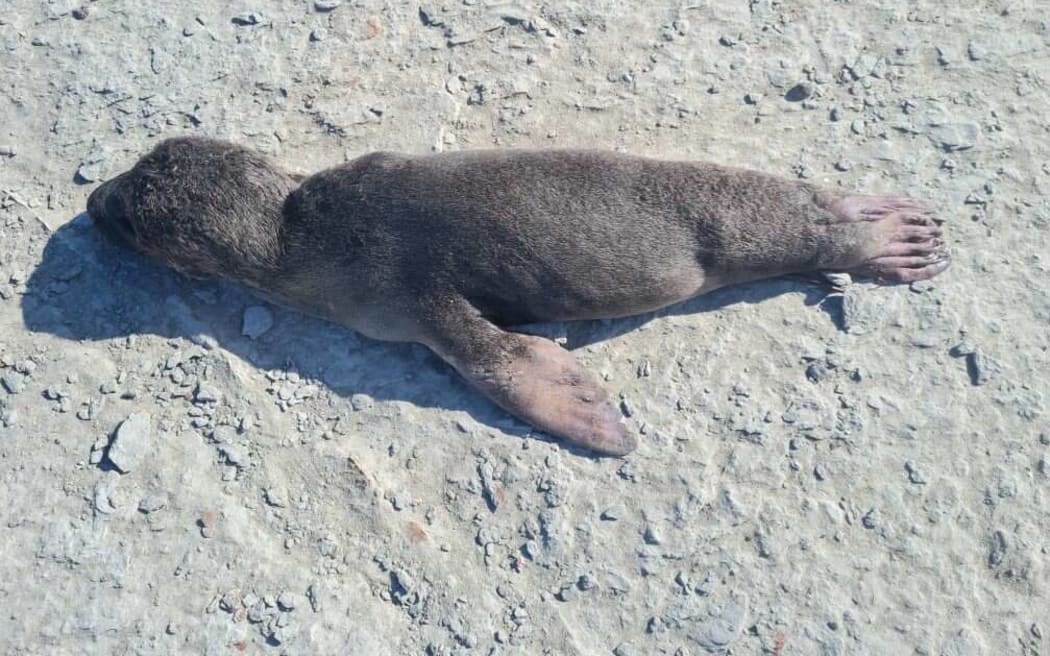
A premature/stillborn seal pup. Photo: Supplied / Department of Conservation / Dr Jody Weir
Weir said an assessment of the number of seal pups born this year was about to get underway, with their girth and length measurements taken from a sample group to get an idea of their health.
Massey University professor of veterinary and marine mammal pathology Wendi Roe conducted post-mortems on some of the dead seal pups.
"All the indications are that they are dying of starvation, so we weren't seeing any evidence of a disease which is one of the things we want to rule out, early on."
There were initial concerns the fur seals had contracted an infectious disease, like avian influenza, which is thought to have killed hundreds of elephant seals and fur seals in the Antarctic last year, but that had been ruled out.
She said as fur seals were not endangered, they often were not the focus of research.
"They can be an indicator species for other marine mammals but also just a general indicator of what is happening in our coastal seas and in this case with what seems to be an increased amount of death due to starvation, it may well be that these seals are indicating to us that something strange is happening to their food supply."
Kaikōura wildlife rehabilitator Sabrina Luecht said she had seen starvation across the food chain in the past couple of years - with more and more unwell seabirds being washed ashore.
An emaciated Eastern Rockhopper Penguin was found at Conway Flat, south of Kaikōura, on 1 February and was transferred to the South Island Wildlife Hospital for treatment and rehabilitation.
The young penguin was a rare visitor (it breeds on the Sub Antarctic Islands some hundreds of kilometres from New Zealand shores), the Kaikōura arrival only the third record on the mainland.
"All the seabirds at present, and it has been going on for a number of years, are really struggling with starvation in relation to climate change impacts so we are seeing a huge number of seabird losses in terms of deceased birds being reported but also unwell, emaciated seabirds."
Luecht said there was no doubt the seabird deaths and seal deaths were linked.
"Essentially we are seeing the start of an eco-system collapse so that's really grim news, I always really struggle with how to raise awareness without driving hopelessness, there needs to be a call to action for some policy changes within New Zealand and also regional changes like increasing marine reserves, at least in the short term."
Luecht said Kaikōura was in urgent need of a wildlife hospital to rehabilitate unwell animals and protect the region's biodiversity.
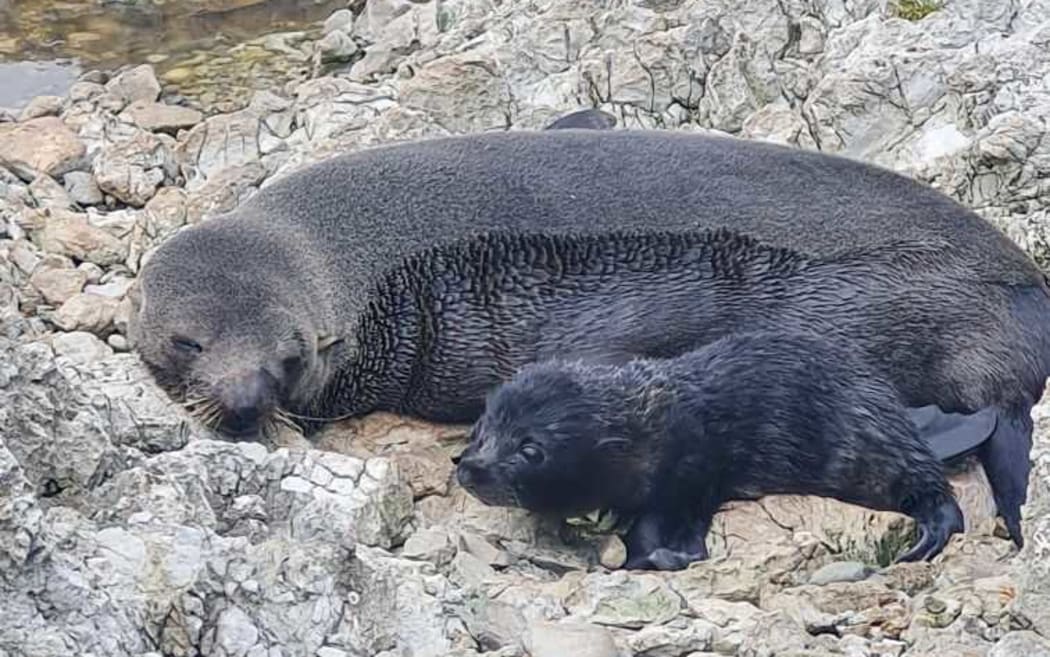
A brand new seal pup, only minutes old. Photo: Supplied / Department of Conservation / Dr Jody Weir

